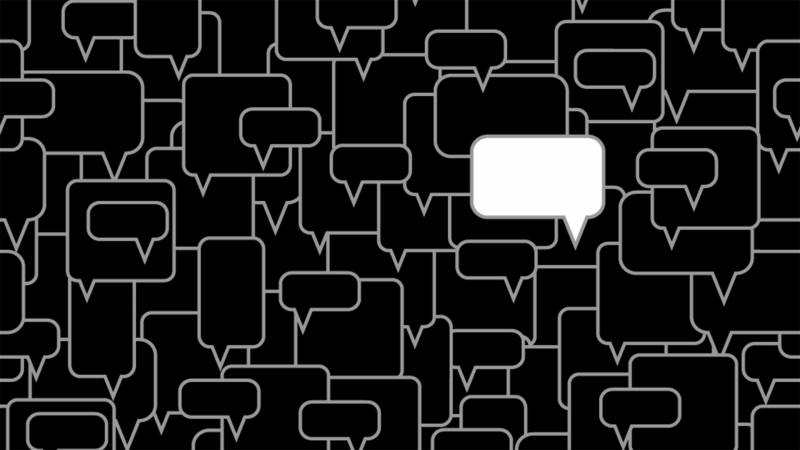Journalism is about listening as much as it is asking questions. And this year, there was a lot to listen to.
We heard firsthand stories of folks trying to survive a pandemic in infection hot spots like nursing homes, parents told us about kids suffering from depression and loneliness, and doctors and nurses let us in on the agonizing reality of watching COVID-19 patients die.
And that’s just the coronavirus. The other major stories of 2020 included wildfires, racial inequity, climate change and an attack on environmental regulations — not to mention science itself — from America’s highest office.
As our team reflects on 2020, here are the words that stuck with us.
February
“There is this recognition that we cannot protect, and even less improve, human health if we don’t really protect the health of the environment that underpins human well-being.”
– Giulio De Leo, Stanford Woods Institute for the Environment, on how human, animal and ecosystem health are interconnected
March
“How does it move? From whom? Under what circumstances? And when, during the course of an illness, is a person infectious? To what degree do they transmit? All of those questions require that we be able to both detect the virus quickly and in many, many people and settings.”
– David Relman, Stanford immunologist, at the beginning of the pandemic
“My wife and I have been married 29 years. We realized this was going to be the ultimate test of our relationship.”
– Carl Goldman, infected with the coronavirus, on enduring a cruise ship quarantine
April
“It pretty well drives me nuts.”
– Larry Hawkinson, 95, on being unable to see his wife of 72 years because of rules in his retirement community
“People have called and said, ‘I saw it on CNN. It wasn’t really real. And then when I heard about your dad, it became real.'”
– Zack Holderman, whose father died of COVID-19
May
“We’re seeing knowledge that is being rushed to the public without being assessed. We’re seeing misapplied wisdom and we’re seeing no perspective.”
– Dr. Irving Steinberg, USC, on the dissemination of not-ready-for-primetime science related to the coronavirus
June
“My fear is, will I be able to keep up? And will the system that I work for become broke financially and otherwise? Because this burden is something that no system is prepared for.”
– Diane Fagen, Alameda County emergency room nurse, on the lack of PPE for health care workers
“I could never depend on an order arriving. I didn’t believe an order was real until it actually showed up at the loading dock.”
– Tosan Boyo, San Francisco lead for COVID-19 operations, on the difficulty of procuring protective equipment
“We recognize that COVID-19 is a scary pandemic and it is killing people. But we also have to recognize that racism is killing people. We have to attack both.”
– Dr. Nadine Burke Harris, California surgeon general, on whether it’s safe for anti-racist protesters to demonstrate
July
“(W)e encounter all sorts of people that don’t have, let’s just say, the best intentions, especially when they see somebody that looks like me. They don’t even take me seriously as a scientist.”
– Asmeret Asefaw Berhe, soil biogeochemist, discussing her paper on how to build an anti-racist lab
“It’s like being a football player who is starting quarterback and now you’re sitting on the sidelines. We risk our lives to save houses, property and people. … So it sucks sitting on the sideline. Nobody is going to like that.”
– Lt. Ben Ingwerson, California Department of Corrections and Rehabilitation officer, on the quarantine at his prisoner firefighting camp
August
“Technology is great, but it does not wheel a bed out of a home into an appropriate ambulance.”
– Chris Godley, director of emergency management for Sonoma, on long-term care homes developing realistic emergency plans
“They’re starting again in California. I said, you gotta clean your floors, you gotta clean your forests — there are many, many years of leaves and broken trees and they’re like, like, so flammable, you touch them and it goes up. Maybe we’re just going to have to make them pay for it because they don’t listen to us.”
– President Donald Trump on California wildfires, at a campaign rally
September
“We are stuck in an impossible situation. The pandemic dictates we go outside, the wildfire dictates we go inside.”
– Theresa Pistochini, UC Davis Energy and Efficiency Institute, on the conjunction of smoke from wildfires with coronavirus restrictions
October
“We’ve got to be smarter. … We’re on a learning curve. Nothing’s the same as it was. And you’ve got to accept that.”
– Perre LaBerge, volunteer fire warden at Spring Lake Village, who helped his fellow residents evacuate during the 2020 Glass Fire
November
“Home school, I just sit on the couch and say blaah.”
Anakin Gupta, 8-year-old student, on the downside of distance learning
“That is not satisfying to the advocates. It’s delayed gratification. But that’s how you have to do it.”
– Former California Gov. Jerry Brown, offering advice for President-elect Joe Biden on how to approach environmental policy.
December
“If we don’t turn the curve around, the answer is probably yes. … If we get overwhelmed with patients in our ICUs, we don’t have enough doctors, don’t have enough nurses, we know that the outcomes are going to get worse, and mortality will spike. And in some communities in California, we’re getting perilously close to that.’
– Dr. Bob Wachter, UCSF, on whether California is heading for a New York-style disaster

